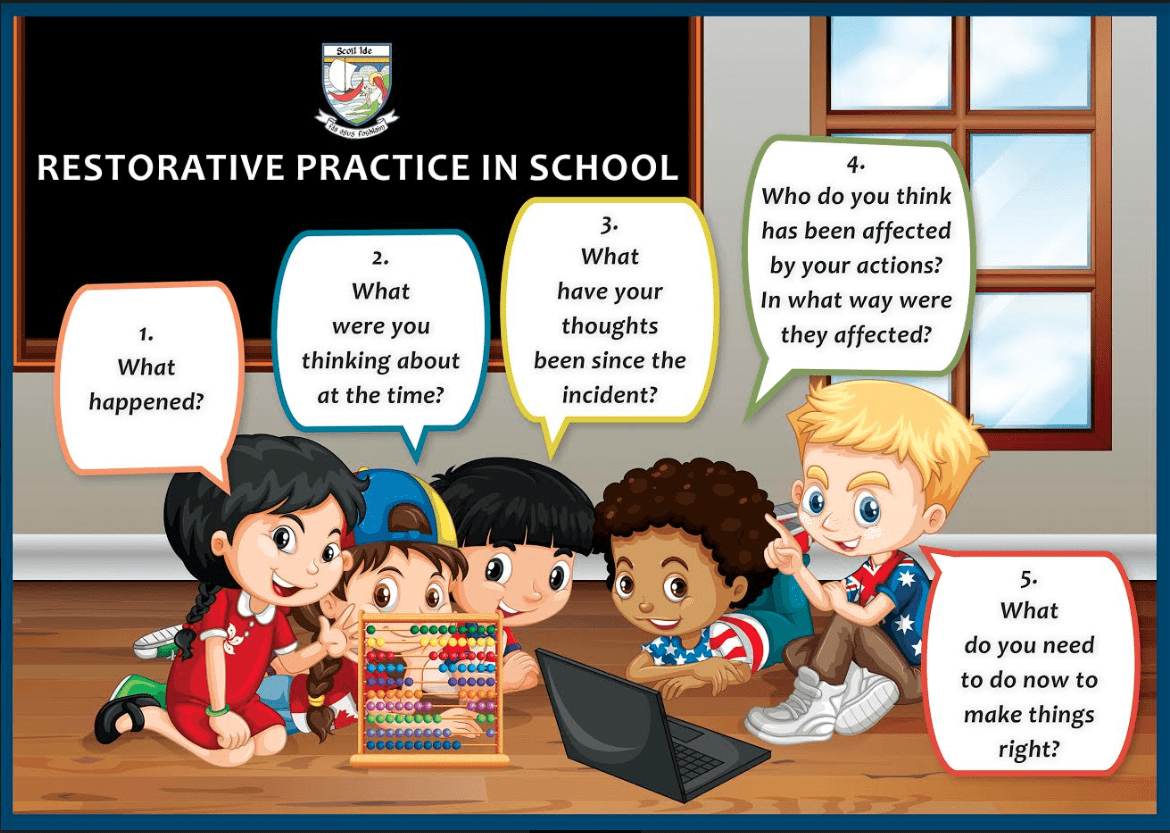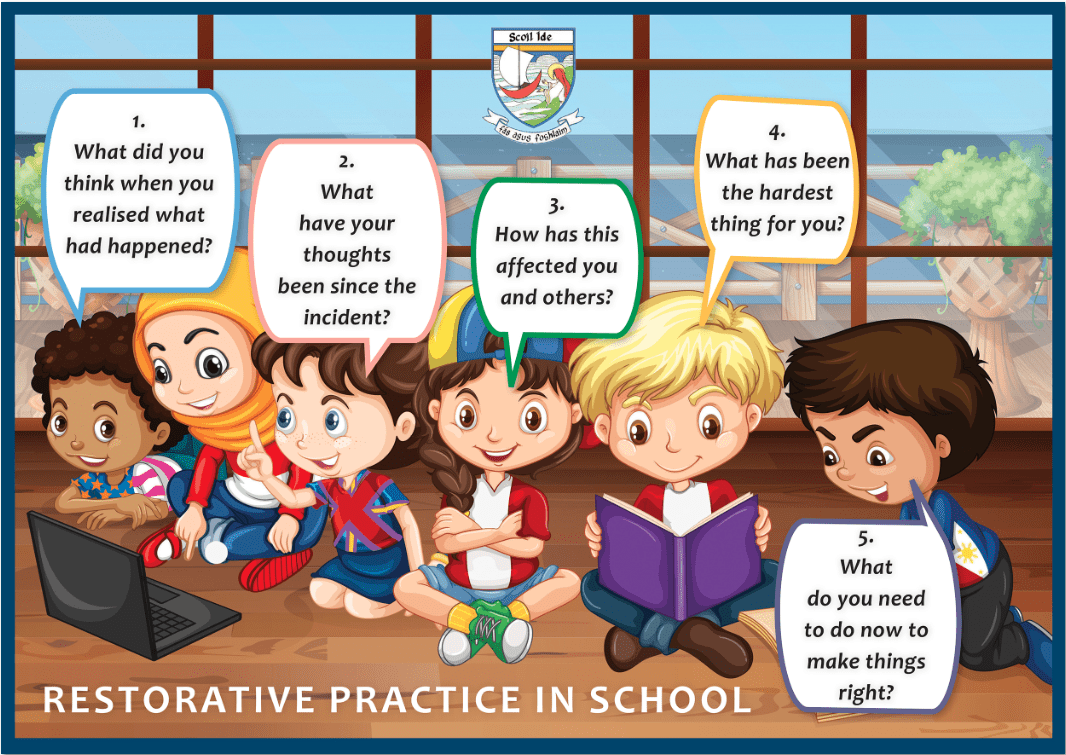Restorative Practice Approach


An important part of our school approach to behaviour is the concept of ‘Restorative Practices’. Our Behaviour Policy is focused on the positive aspects of behaviour rather than on punishments or sanctions, although these are included in the appropriate section of our Behaviour Policy.
We promote the notion of a school community where everything we do is based on mutual respect. ‘We sail our ship together”.
Pupils are expected firstly to respect themselves and then to treat each other and staff members with respect. Teachers and staff members are expected to treat children with respect. We take the view that pupils (other than some pupils with very special needs) choose their behaviour to a great degree – they always have an alternative. Therefore, they must take responsibility for their behaviour. If they treat others poorly, they may be acting out their own anger and frustrations, but they can also learn to choose differently and more positively. We ask children to treat others as they want to be treated themselves.
The Rules of Anger are:
It’s ok to be angry.
When I become angry:
- I don’t hurt others
- I don’t hurt myself
- I don’t hurt (damage) property
- I talk about how I feel.
Mending Relationships – Rationale:
If I become angry and hurt someone with my words or actions, I must try to make things right. I will do this by talking with the person I hurt, and I must be prepared to offer an apology, and I must be prepared to guarantee that I will not hurt that person again. I must try to realise myself what it feels like to be hurt with words or with actions and I must try to recognise the damage that my poor behaviour can do to others. In this way, I help myself to mend and I help my victim to mend.
What does ‘Restorative Practice’ involve for our school?
Restorative Practices is a process to involve, to the extent possible, those who have a stake in a specific offence and to collectively identify and address harms, needs and obligations, in order to heal and put things as right as possible .
Resource : www.transformingconflict.org
Restorative Practice:
- Creates an ethos of respect, inclusion, accountability and taking responsibility
- Creates a commitment to relationships, impartiality, being non-judgemental
- Encourages collaboration, empowerment and emotional articulacy
Key Skills of Restorative Discipline are:
- Active listening
- Facilitating dialogue and problem-solving
- Listening to and expressing emotion
- Supporting others in taking ownership of problems
An important element in Restorative Practice is Fair Process:
Expectations – everyone knows what is expected of them
Engagement – involves individuals in decisions/listens to views
Explanation – clarify how decisions are reached
‘Individuals are most likely to trust and co-operate freely with systems – whether they themselves win or lose by those systems – when fair process is observed’.
Kim & Mauborgne , Harvard Business Review, July – August 1997
People who have been harmed need:
- Someone to listen to my story
- Time to calm down
- A chance to ask – why me? What did I do to deserve that?
- The person concerned to understand and acknowledge the impact their behaviour has had on me
- A sincere spontaneous apology
- Things put right, if possible
- Reassurance it won’t happen again
Offenders are asked the following questions:
- What happened?
- What were you thinking at the time?
- What have you thought about since?
- Who has been affected by what you have done? In what way?
- What do you need to do to make things right?
School Group Conferences can be held to deal with issues:
- Offenders tell what they did
- Everyone talks about what impact this has had on them
- The group reaches a shared understanding of the harm that has been done
- The group negotiates an agreement about how to repair the damage and minimise further harm
